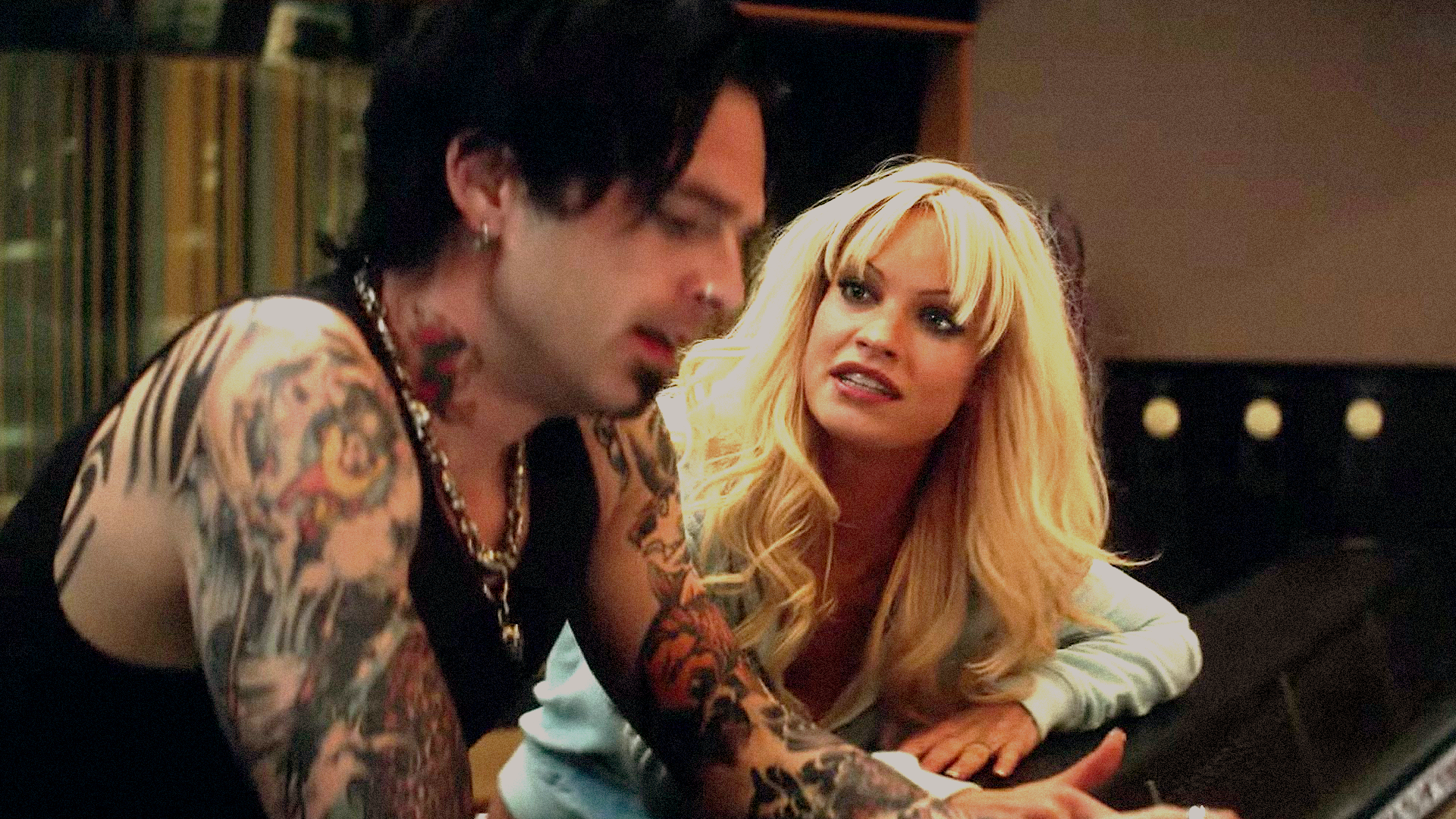The new biopic – shunned by its titular star Pamela Anderson – has raised the question: at what point should we stop reclaiming someone’s experience for entertainment?
Lingering beneath its comedic overtone, Hulu’s new series ‘Pam & Tommy’ unpicks an ominous 90s mega-scandal: the theft and illegal distribution of Pamela Anderson and Tommy Lee’s honeymoon sex tape.
Despite chronicling the gross-exploitation of Anderson that followed, the Baywatch star has revealed the show was made without her consent.
Hulu’s new series ‘Pam & Tommy’ chronicles the mile-a-minute marriage of Pamela Anderson and Mötley Crüe’s Tommy Lee.
Its fast pace, bizarre drug fuelled sex montages, and the incredible makeup transformations of Lily James and Sebastian Stan have made it a hit with audiences. But despite the shows playful silliness, the story at its core is one of female exploitation in Hollywood.
Anderson and Lee’s infamous 90s sex tape was leaked by a disgruntled carpenter – played by Seth Rogen – who ransacked the couples’ safe to take back payments he was owed. The drama that followed is played out over 8 episodes, each as confusing and fun as the next.
Jumping frantically from champagne-soaked nightclubs, porn sets, and Beverly Hills mansions, it’s hard to tell what the series is truly about at times.
For the most part, ‘Pam & Tommy’ feels more like a gaudy fever dream than a comment on the female experience.
Its sporadic plot and audacious costumes have also drawn mixed responses from critics. Lance Ulanoff argues that the show follows the birth of the internet age, while CNN’s Lisa Resper’s France references the pre-social media Hollywood depicted in the series as a nostalgic ode to early 90s pop culture.
But when you really get to the root of the programme, a core that doesn’t emerge in full force until the series’ midway point, ‘Pam & Tommy’ is about a woman falling victim to sexual exploitation and misogyny.
The crude humour often distracts from this reality, but the most jarring moments from the show come in subtle pulses, lurking beneath the drama of Anderson and Lee’s sex-tape leak. Like a scene where Anderson’s lines are cut by Baywatch producers, a monologue she has eagerly rehearsed for weeks.
Instead, Anderson is forced to stay mute, have her backside pampered and prodded with makeup, and run dutifully in slow motion across the beach while male members of the crew gawk on.
The overt sexualisation of Pamela Anderson is nothing new, given her ongoing sex-symbol status. But Hulu’s new show sheds light on the ways in which micro-aggressions of misogyny and predatory sexual advances emotionally impact their victims. The ways a ‘sex symbol’ status is often used as a free card for subjecting women to continued humiliation and abuse.




















